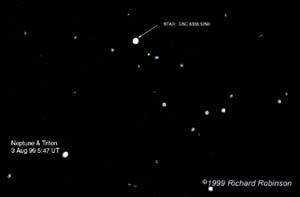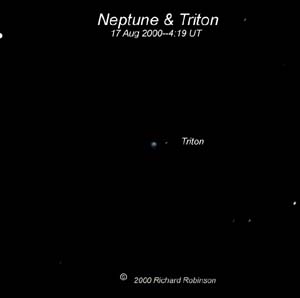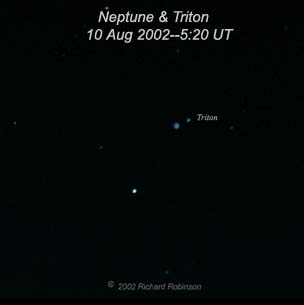 |
Scope: 8" LX 200 SCT |
| MX - 5C CCD | |
|
This
image of Neptune was taken on 3 Aug 99. Neptune is the blue-green
"star" in the upper center of the image. Triton is between Neptune
and the star marked with an arrow.
Click here to download a PC DOS program (46K zipped file) to show the positions of the moons of Neptune. This program is freeware. Note: I discovered an error in the original version. If you downloaded this file before 20 Jun 2000, you need to download it again to get the revised version
|
Focal Ratio: f10 |
| Exposure: 8 sec for planet, 240 sec for Triton. | |
 |
Scope: 8" LX 200 SCT |
| MX - 5C CCD & STAR 2000 | |
| Focal Ratio: f10 | |
| Exposure: 16 sec for planet, 300 sec for Triton. | |
 |
Scope: 8" LX 200 SCT |
| MX - 5C CCD & STAR 2000 | |
| Focal Ratio: f10 | |
| Exposure: 5 sec for planet, 300 sec for Triton. | |
|
|
|